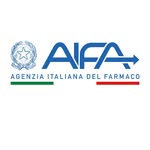.png) Agenzia Italiana del Farmaco
Agenzia Italiana del Farmaco
Nisticò: “Precision medicine and prescriptomics to improve efficacy and reduce side effects of therapies, optimising resources” - Nisticò: “Precision medicine and prescriptomics to improve efficacy and reduce side effects of therapies, optimising resources”
Nisticò: “Precision medicine and prescriptomics to improve efficacy and reduce side effects of therapies, optimising resources”

“Precision medicine is one of the biggest revolutions of recent decades: an innovative approach that has made increasingly personalised therapies possible. We are now entering the era of prescriptomics, an emerging discipline that deals with analysing, integrating, and optimising the use of medicines based on a patient’s genetic, biochemical, and clinical profile. It is an ambitious but necessary challenge to improve the effectiveness of treatments, reduce side effects and optimise the use of health resources.” This was stated by AIFA’s President Robert Nisticò in his speech today at the panel discussion ‘Towards precision medicine’, organised at the Chamber of Deputies by the Rome Medical Association.
“In an age characterised by an ageing population and an increase in chronic diseases, polytherapy has become a widespread reality – explains Nisticò – Almost one in three elderly people (28.5% of those over 65 according to the latest OsMed report) takes 10 or more medicines, while 68% have received prescriptions for at least 5 different medicines. The interaction of so many medicines becomes difficult for doctors to manage and can lead to adverse effects or poor treatment tolerability for patients, who may give up or not take treatment correctly. The lack of therapeutic adherence costs around EUR 2 billion per year to the NHS. We cannot afford this figure. This is where precision medicine and prescription medicine play a crucial role’, underlines AIFA’s President, recalling that ‘to address these challenges, AIFA has set up an ad hoc technical panel for precision medicine and prescriptomics. In collaboration with scientific societies, professional and academic associations, we are working to shortly develop useful guidelines for all health professionals and patients, especially those in polytherapy. The objective is twofold: improving the quality of life and optimising the use of health resources.”
Recent studies show that using AI to monitor therapies and provide real-time support can increase adherence to care by up to 20%, resulting in a 40% improvement in quality of life and 20% improvement in survival. In addition, genomic information allows prescriptions to be adapted, reducing toxicity risks and adverse effects, thus contributing to a more sustainable health system. “The future necessarily lies in the integration of precision medicine with prescriptomics” - he concludes, “to streamline prescriptions and improve patients’ quality of life. Each patient is unique, and deserves a treatment just as unique.”
Published on: 27 May 2025







